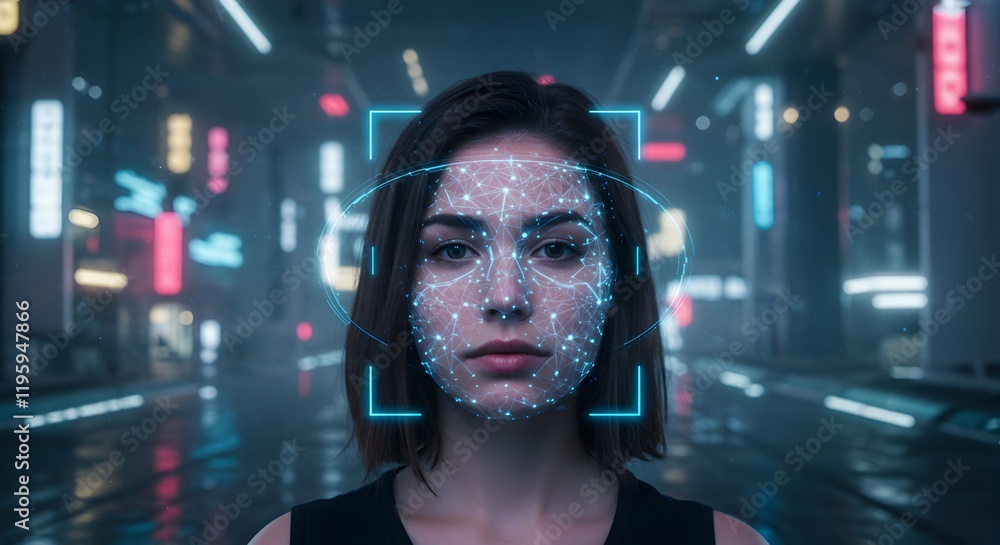The Evolving Landscape of Privacy in a Hyperconnected World
As we hurtle toward the mid-21st century, privacy is becoming one of the most elusive and debated concepts in the digital age. With advances in technology, data collection, and surveillance capabilities, the idea of being truly anonymous is slipping through our fingers faster than ever.
Back in the early 2000s, privacy concerns mainly revolved around internet cookies, basic data tracking, and government surveillance programs exposed by whistleblowers. Fast forward to 2050, and the world has transformed into a seamlessly interconnected web of devices, services, and people — a hyperconnected ecosystem where every interaction leaves a digital footprint.
Why Privacy Matters More Than Ever
Privacy isn’t just about hiding secrets anymore. It’s about protecting personal autonomy, freedom of expression, and human dignity. In a world where your biometric data, location, health status, and even thoughts (via brain-computer interfaces) can be monitored or hacked, the stakes are unimaginably high.
The risks of losing privacy include:
-
Mass surveillance by governments and corporations that can lead to social control and discrimination.
-
Identity theft and fraud becoming more sophisticated as attackers exploit data-rich environments.
-
Manipulation and behavioral profiling used to influence decisions, from political choices to shopping habits.
-
Loss of personal freedom as societal norms shift in response to pervasive monitoring.
The Technologies Shaping Privacy in 2050
Understanding the technologies that will define privacy is essential to grasp whether anonymity can survive:
-
Ubiquitous Sensors and IoT: Embedded everywhere — homes, streets, clothes — collecting continuous streams of data.
-
AI-Powered Data Analysis: Able to combine and interpret vast datasets, revealing patterns no human could discern.
-
Biometric Identification: From facial recognition to DNA scans and heartbeat signatures, biometric data will be the new ID.
-
Brain-Computer Interfaces (BCIs): Potentially accessing neural data, raising unprecedented privacy concerns about thoughts and emotions.
-
Quantum Computing: Could both break current encryption methods and enable new forms of secure communication.
The Paradox of Convenience vs. Privacy
Many privacy trade-offs arise from our desire for convenience. Smart assistants, personalized services, and seamless digital experiences require vast amounts of personal data. Users often willingly sacrifice anonymity for better recommendations, ease of use, and social connectivity.
This paradox fuels the tension between technology’s promise and the potential erosion of privacy rights.
Surveillance Capitalism and the Death of Anonymity
The world of 2050 runs on data — and data is the new oil, gold, and power source all rolled into one. As we move deeper into this hyperconnected society, surveillance capitalism dominates the economic landscape.
What Is Surveillance Capitalism?
Surveillance capitalism refers to the monetization of personal data by corporations — especially Big Tech — through constant monitoring, analysis, and predictive modeling. It’s no longer just about tracking your clicks or searches.
By 2050, companies track your facial expressions, tone of voice, biometric responses, eye movements, even micro-emotions via augmented reality glasses and neural implants.
These behavioral signals are fed into powerful AI engines to predict and manipulate consumer behavior, create digital profiles, and serve hyper-personalized content, ads, and political messages — all without users truly understanding how their data is used.
Examples of Surveillance in 2050:
-
Smart cities use AI-driven surveillance systems to track movement, monitor crime, and enforce laws in real time.
-
Wearable and implanted health monitors stream data 24/7 to health providers and insurers — often without opt-out options.
-
Home AI systems listen and watch to optimize environment settings, but they also report anomalies to corporations or authorities.
-
AR lenses collect eye-tracking data to gauge your interests and reactions to ads, content, and even people.
Governments and the Global Panopticon
It’s not just corporations. Governments around the world have deployed massive surveillance infrastructures, many justified by national security, public health, and digital safety concerns.
From AI-powered drones monitoring cities to predictive policing algorithms, the line between public protection and authoritarian control blurs rapidly.
In countries with authoritarian regimes, surveillance tools are weaponized to silence dissent, monitor political opponents, and control the population through digital social credit systems. Even democratic societies face immense challenges balancing security with individual rights.
Some key privacy-invasive practices:
-
Mass facial recognition in public spaces.
-
Mandatory biometric IDs linked to financial services, voting, and travel.
-
Emotion recognition AI at borders, in schools, and workplaces.
-
Neural surveillance to detect intent in high-risk zones — still controversial, but on the rise.
The Disappearance of Anonymity
By 2050, the idea of walking into a coffee shop, browsing the web, or attending a protest without leaving a digital trace sounds almost quaint. Anonymity is now an endangered concept — and in some regions, almost extinct.
Every action, transaction, movement, and even emotion can be logged. From your digital DNA to your subconscious desires, the data economy knows you better than you know yourself.
Unless you’re a cyber-savvy privacy maximalist using extreme measures like decentralized systems, zero-knowledge proofs, and physically air-gapped devices, true anonymity is close to impossible.
Fighting Back – The Rise of Privacy-Preserving Technologies
As surveillance capitalism and government monitoring reached dystopian levels by 2050, a counterforce emerged — a revolution of privacy-preserving technologies designed to empower users and resist data exploitation.
Although anonymity is hard to achieve, it’s not entirely dead… yet.
Encryption Goes Quantum-Proof
In 2050, traditional encryption methods from the 2020s are obsolete. With quantum computing capable of breaking RSA and ECC (elliptic curve cryptography) in minutes, privacy tech had to evolve fast.
Enter Post-Quantum Cryptography (PQC)
-
These are algorithms that resist quantum attacks and form the new backbone of secure communications.
-
Government agencies and tech firms now rely on lattice-based cryptography, hash-based signatures, and multivariate polynomial algorithms to secure data.
-
Messaging apps, file storage services, and IoT devices come standard with quantum-proof end-to-end encryption.
Homomorphic Encryption
This advanced encryption allows data to be processed without ever decrypting it. That means:
-
Your medical data can be analyzed by AI without revealing any personal details.
-
Banks and governments can compute on sensitive data while keeping it private.
-
Even advertising systems can target you anonymously based on encrypted preference profiles.
-
In 2050, Homomorphic Encryption Powers Everything From Healthcare Analytics to Voting Systems
Decentralization to the Rescue?
Centralized systems proved to be honeypots for hackers, governments, and corporations. So by mid-century, a powerful movement toward decentralized networks exploded — driven by blockchain, distributed storage, and peer-to-peer protocols.
Privacy-Preserving Decentralized Tools:
-
Decentralized VPNs and browsers like MeshNet and Obscura OS route your traffic through thousands of nodes with zero central logging.
-
Self-sovereign identities (SSI) store personal credentials like age, nationality, and health records on your device only, not with third parties.
-
Zero-knowledge proofs (ZKPs) allow people to verify something (like being over 18 or vaccinated) without revealing the actual data.
This new stack of technologies lets users reclaim some control — although adoption varies wildly depending on region and digital literacy.
AI That Works for Your Privacy
Ironically, AI — the tool used to violate privacy at scale — is also being deployed to protect it. In 2050, privacy AIs act as digital guardians, constantly scanning for threats to your identity and flagging suspicious data access.
Personal AI Privacy Agents:
-
Monitor data flows in real time and auto-block leaks.
-
Act as smart consent managers: no more 100-page terms & conditions.
-
Help you obfuscate metadata and digital fingerprints.
These agents use adversarial AI to confuse trackers and change patterns in your behavior so you’re harder to profile — like wearing a cloak of invisibility on the web.
Privacy Laws — Do They Even Work?
By 2050, most countries have updated versions of laws like GDPR 5.0, California DPA, or Digital Rights Acts that promise privacy protections. However:
-
Enforcement is weak in many regions.
-
Big Tech and data brokers often exploit loopholes.
-
Surveillance-as-a-service is a booming underground industry, with enforcement struggling to keep up.
That said, some global privacy alliances (led by digital-first nations) are pushing back hard, with aggressive transparency rules, real-time audit trails, and harsh penalties for violations.
Living in the Post-Privacy Era – Adaptation or Resistance?
By 2050, the question isn’t just how to stay anonymous — it’s whether anonymity still matters, and what people are willing to trade for convenience, survival, or power in a hyperconnected, hyper-monitored world.
Digital Identity as a Social Currency
In the mid-21st century, your digital identity is inseparable from your real one. From smart home access and autonomous vehicle usage to healthcare and voting, everything is tied to your unique digital twin. You can’t exist offline without being excluded from essential services.
This identity layer is:
-
Verified through biometrics (DNA, retina, gait analysis).
-
Synced across every device, system, and service.
-
Continuously tracked by AI-driven behavior analysis.
What used to be considered surveillance is now just… life.
Anonymity: A Luxury for the Elite?
Ironically, true privacy is now a luxury commodity. The wealthy and powerful can pay for:
-
Off-grid living in Faraday-hardened, AI-guarded smart bunkers.
-
Identity obfuscation services that rotate personas and wipe digital traces.
-
Deepfake decoys to scramble facial recognition and biometric tracking.
Meanwhile, the average person is trapped in what some call the “glass society” — a life fully visible, with few rights to opacity.
Cultural Shift: Privacy Fatigue and Privacy Rebellion
Two major social reactions have emerged:
1. Privacy Fatigue
A majority have simply given up. The belief is: “They already know everything, why fight it?”
These individuals:
-
Freely share data for convenience and rewards.
-
Trust AI systems to handle decisions and risks.
-
Are desensitized to being watched.
2. Privacy Rebellion
A smaller but growing minority refuses to comply.
-
They use analog tools, live in low-surveillance zones, and reject always-on devices.
-
Open-source counter-surveillance communities flourish on mesh networks and encrypted forums.
-
Art, activism, and literature in 2050 often revolve around themes of “digital resistance.”
Redefining Privacy in 2050
In this new age, privacy is no longer about hiding — it’s about control. The real question isn’t “Can you be anonymous?” but “Who owns your data and decides what happens to it?”
People in 2050 fight for:
-
Informed consent: Clear, revocable, real-time permission models.
-
Data dividends: Getting paid for what you share.
-
Digital autonomy: The right to be forgotten, to remain silent, to disconnect.
Some countries now consider privacy a human right, codified into AI governance laws and enforced by real-time audits powered by machine ethics systems.
So, Can You Ever Be Truly Anonymous Again?
Technically? No — not unless you vanish from society entirely.
But functionally? Yes — if you take back control.By 2050, privacy is no longer about staying invisible; it’s about being visible on your own terms. It’s not about hiding from the world — it’s about choosing how the world sees you.
Final Thoughts
The privacy landscape in 2050 is a tug-of-war between technological domination and human resistance. While absolute anonymity is a ghost of the past, digital self-determination may become the most important freedom of the future.
And in a world where every movement, whisper, and thought can be traced — perhaps the most radical act is choosing to be authentically, privately yourself.
-



